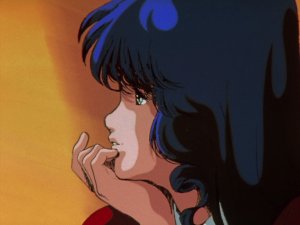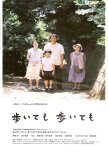
Still Walking centers on a particular day in the life of an ordinary Japanese family. While they try to maintain a semblance of normalcy on this day, the occasion cannot allow it to be wholly so. It is the memorial of a tragic death, and so even the most errant of relatives have come to call.
The story is told through beautifully written, but realistic conversations and domestic interactions between characters. While they cook, play, eat, or chat together, the dynamics between them slowly but surely unfold. We see fondness, pain, nostalgia, resentments, and all manner of feeling bubble to the surface. But none of this is done in the usual bombastic way, lending the entire piece more relatability than one might first imagine. It’s all very Japanese, but very human as well; how often have you swallowed a hurtful comment or urged yourself to forget it… just because of the ties that bind? I saw parts of my own family in Still Walking, little bites of conversation I've spoken myself. It leaves one with much to think about.
My chief issue would be that, while slow films rarely bother me, this takes a little *too* long to launch. Still Walking requires the viewer to see every minute to feel its effects to the highest measure. The ending also feels a little incomplete, but that can be overlooked; Still Walking is meant to portray life continuing under the cloud of death. We don’t always get perfect conclusions in real life, do we?
Calling out a particular actor or actress for an exemplary performance would be difficult. The entire ensemble works together so well they give the solid impression of an actual family, bitterness, warmth, and all. If forced to choose, Abe Hiroshi might win as the most easily recognizable among them; much of Still Walking focuses on his Ryota, and he’s arguably representative of Kore-eda himself. Kiki Kirin is also remarkable as Toshiko, the talkative and smiling mother who hides her many battle-scars behind polite words. She sometimes reminded me of my own mother, which was a little jarring.
A particular piece of music that sticks with me after completion is Blue Light Yokohama (Ishida Ayumi). If one has never "heard" nostalgia, this song will change that. Despite being quite the “oldie,” its inclusion is just exquisite. Common sounds are used effectively also; such as overlapping talk, popping and sizzling in the kitchen, etc.
Please note the interesting shots used in Still Walking. Detail in them is astounding, from hallways to individual rooms. The cinematography here lends an air of tranquility, of reality, of home…. My weak powers of description are not enough to describe the effect. One must truly see it for themselves.
Cet avis était-il utile?
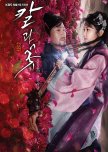
What makes Knife and Flower most alluring will be cinematography. Only full length films can compare with the high quality and artistic direction which can be seen in this drama. Occasionally I tilted my head at an edit, but these moments can be counted on one hand. The world looks deep and authentic, though colors dictate mood and atmosphere. And how about the action scenes, you ask? More than impressive, since most of the actors appear trained and capable.
Like the introduction implies, Knife and Flower marries literary archetypes to elements of reality. Many characters actually existed and several events portrayed actually took place (albeit embellished for dramatic effect). The historical backdrop imparts solid atmosphere, bolstering weaknesses with varying potency. I loved how brutality and unrest, definitive of the times, was neither gratuitous nor shied from; the elegance of the story shines because of the deep tragedy marking it. Some problems exist, admittedly. As in Romeo and Juliet, the love line begins dubiously due to chemistry. The entirety of the "Golden Flower Agency" felt underdeveloped, despite its necessity to plot motion. Execution of the time skip initially had me frowning. In the end, everything comes to maturation with surprising clarity and beauty. The viewer will doubtlessly be bitten and drawn in before they even realize.
Performances in Knife and Flower are incredible, many perhaps even award worthy. Choi Min Soo, in his turn as infamous Yun Gae So Mun, hits the master class. He is mysterious, compelling, and intimidating; if a glance could kill, the entire region would drop dead. But the nuance Choi brings to the role could make even the real thing proud. Uhm Tae Woong and Kim Ok Bin are masters of speaking with the eyes. Reserved silence is required of them, but what isn't said is almost as powerful as the implicit. Others of note include No Min Woo (Nam Sang, of beautiful appearance and withered heart) and Ohn Joo Wan (Bo Jang, a more sympathetic echo of Hamlet).
Music must enhance, not get in the way. After the quirked eyebrow misses of the first episode, the soundtrack honestly excels at this. Orchestrations hit the right notes, especially those tied to suspenseful or moving scenes. Wax provides the tearful anthem "Dear Love," and with lyrics so lovely, whether or not it played meant the difference between dry and wet eyes.
Cet avis était-il utile?
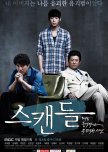
Once the adults age and the children grow, however, the pacing adopts an uneven groove which alternates between satisfying speed and sleepy doddering. Some plot points evolve merely as long chains of people finding out secrets (or not). Several subplots, related to the main story in passing, are explored over time; these often fizzle quickly without much impact, but the characters introduced in them tend to stick around after the fact. Because of the intense focus on the kidnapping and its fallout, these become frustrating due to lack of development. The "romance" between the main couple suffers from this issue as well; their interactions are numerous, but feel hollow and unnecessary. Each secondary couple, some of which are surprising and strangely built, have twice the chemistry and a fourth of the airtime.
However, punch remains to be found. When something big happens, despite being padded down by the aforementioned fodder, it's like an explosion. Crisp cinematography works together beautifully with the wild turnarounds and shifts in dynamic. This drama knows how to swing emotional weight in spades. There are just too many episodes, with too little oomph to distribute over its course.
Of the numerous actors and actresses featured in Scandal, Jo Jae Hyeon offers the most laudable performance. Whatever the role of Ha Myeon Geun called for, he delivered without question. What struck me most was the veracity of emotion and striking normalcy this character exuded. Because of this powerful performance, my sympathies wrapped around this character in spite of his crime. Ki Tae Young also has a fantastic go as second lead, the "other" Eun Joong. His feelings were openly displayed in his eyes and face without exaggeration, a true mark of talent. As for the "primary" Eun Joong, my first experience with Kim Jae Won was a good one. Despite landing a slightly boring character, he elevates the part with good choices and natural charisma.
Park Sang Min confused me, as I have often heard him described as a talent. As Jang Tae Ha, despite an instance or two of strength, he overacted noticeably. Add to this misfortune the desperate attempts to make him look old enough for the role (stuffing him into "grandpa" clothes, dying his hair a new shade every episode). There are also several wasted characters, such as the one performed by Jo Yoon He. Her Wu Ami starts somewhat irritating, steadily improves, then drops in importance as a character separate from the loveline.
Scandal may count its atmospheric and masterfully utilized soundtrack among its strengths. Silences are strewn throughout scenes, allowing for the instrumentals (sometimes moving, others haunting), to shine when played. All of the vocals are memorable as well, with the best offered by Masyta Band ("I Am"), Kim Jin Seon ("Stay") and The Position ("Last Love of My Life").
Cet avis était-il utile?
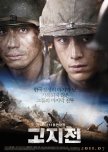
Probably the strongest point of the movie is the cinematography. Battle scenes are tasteful but tremendous; the scenes done on the infamous hill were especially eye-catching and must have been difficult to film. Some of the scenery ended up being quite beautiful as well, which is sad considering so much fighting went on in those areas.
Go Soo and Shin Ha Kyun definitely carried the performance aspect of Gojijeon between them. Shin is always a pleasure to watch and brings any character to life with ease, but Go Soo was shockingly compelling. He played Soo Hyuk with intense complexity, often making me question how I felt about his character: was he right or wrong? Also, the interaction between the two felt natural...which is great since a good chunk of the story rides on their characters and their involvement with one another. I have to say the rest of the cast was somewhat forgettable just because their characters weren't as necessary or developed. There were several familiar faces if you often watch Korean drama, though.
My only real gripe with this film is that occasionally it would feel preachy. This is definitely an anti-war film, and you can really feel the atmosphere of futility the conflict had. Usually the subject was handled with grace, but on the instances it was not, I felt as though I'd been pulled out of the story briefly. Other than that, though it's been done before in other films, it's always nice to see a non-American focus on the Korean war during this time period.
Cet avis était-il utile?
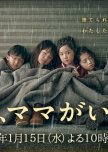
Ashita, Mama ga Inai
27 personnes ont trouvé cette critique utile
Of course, that isn't to say some of the offense is incomprehensible. To the Japanese, image means a lot. It’s also impossible to control how viewers digest what they've seen on television. "Will they take it all as fact?" With Ashita, typically fantastical and almost always exaggerated, that would be worrisome indeed. But as previously mentioned, best to take it as the last shadows of a child’s dream, a bittersweet fable. Does Ashita seek to impart a worthwhile message? Certainly, and it succeeds; after all, fairy tales were born from the desire to impart morals, and dreams often contain some kernel of truth. But though we can learn from them, we know they don't fully reflect reality.
This drama rolls along a simple format, one often seen in Japanese titles. In the first half, each episode focuses on a different child and their “trials” with foster homes. This structure allows the viewer to uncover character history individually, learning about everyone at Kogamo no Ie (roughly "House of Ducklings") bit by bit. Viewers will encounter a heavy tone, with certain scenes sporting almost horror film-esque attributes. Oddly enough, the home/orphanage itself wasn't depicted as shockingly as one might assume; it was rather the potential adoptive parents themselves.
Each plot thread shares airtime in the second half, building upon and resolving what we've learned until that point. My issues with the drama began at the juncture between these two halves. If changes were indeed made by the network to sooth public tension, I've been told it would have occurred here. The story lightens, allowing for its natural humor to come out much more. Yet I found Ashita crumbling in places, culminating in at least two subplots without satisfactory resolution. There was eventually dialogue that broke my immersion, lines which felt like sermons. Despite these problems, the emotional aspect of the drama works consistently well throughout its duration. Overall an involving watch, to say the least.
Not surprisingly, most members of the Ashita, Mama Ga Inai cast are children. Ashida Mana towers above the rest with a precocious talent, her turn as Post incredible. She begins by acting like a cynical delinquent writ small, yet develops slowly into a “little mother,” to the other children; this is a child too mature for her age, yet still a child nonetheless, and Mana owns the role from top to bottom. Suzuki Rio is another powerful, budding talent, a young lady who excels at the natural expression of a normal child. Her Donki could have been written better, but she does well with what she’s given. The other kids were often hit or miss, sometimes exaggerated to a cartoonish point (Bombi, sometimes Piami), though somber scenes brought out the absolute best in them.
From the adult half of the stage, we’ve scene-stealer Mikami Hiroshi as the darkly handsome yet gruff director Sasaki Tomonori-san (better known to his charges as “Maou/Devil King”). Thundering about on a limp leg, aided by a heavy cane, this is a mysterious character whose almost esoteric motivations lend much to the thought of Ashita as a fairy tale. Is this character a wicked devil or an unexpected angel? Either way, he's wildly interesting... and that "Tch?" Unforgettable.
Like the presence of “Maou,” music bolsters the fairy tale approach of this drama. Most tracks introduce a very emotional tone to scenes, with many sounding very light or magical, often in a melancholy way. For example, the theme “Dare Ka Watashi Wo,” (Kotoringo) sounds just like a lonely lullaby.
Cet avis était-il utile?
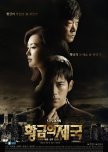
As a period piece, Golden Empire explores harsh years in Korean history. While we are enfolded by this unique atmosphere, the opulent poison represented by the Choi family's own corporate power and wealth begins to take hold. Managing to be highly personal and impactful (even as it tackles complicated business affairs), this is a drama without cliche. Potential viewers should note only negligible romance is present. A few dalliances do exist, but these are far from sweet. For instance, one of the first and foremost openly compares its trajectory to the ill-fated connection between Eva Braun and Hitler. Of the heavily explored ties, family and business are king. Don't expect fuzzy heart flutters here; in the world of Golden Empire, loved ones stab you in the back for even one more share and prison is just another business trip.
Some imperfections exist admittedly; early episodes are strewn with time skips and somewhat confusing cinematographic cuts. It took about five hours submerged in this drama for me to find my footing and solidify my understanding of the plot. Once I could, the rest of the experience was riveting.
The leads offer juggernaut performances. Go Soo becomes Jang Tae Joo with almost theatrical flourish, building him impressively. This character represents the unpredictable, behaving radically in the race for money and influence. As such, his portrayal adopts a delightful and intoxicating element of controlled volatility, comparable to a lightning strike. It was a pleasure trying to figure out what he might say next and just how. Son Hyun Joo and Lee Yo Won embody the brilliant, but tragically flawed Choi cousins. Both of them had an amazing ability to begin friendly conversations and end them with figurative claws out. Out of the three addressed in this section, the persistent Min Jae (Son Hyun Joo) captured my attention without fail. His scenes comprise some of the most dynamic I've encountered in any drama; truly, both character and actor are highlights. Watch out for any scene including even two of these talents; it's guaranteed to be thrilling, especially if it includes both men.
Orchestrations were generally well applied, often serving to add that extra punch to a scene. The best description that can be made of them "moody, elegant, and high drama." Beyond the incredible introductory piece though, I'm not sure any of them make for good post-view listening. Vocals are another story, with Yeon Gyu Sung ("Crying"), ALi ("In My Dream"), and Sun Soo Jin ("Shout to the World") serving up some of the best I've heard all year. Despite romantic lyrics occasionally inappropriate to the series, but hey, they sound great.
Cet avis était-il utile?
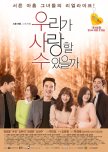
Though Jung Wan (Eugene) might be considered a traditional heroine, there are actually three leading ladies. Each woman has her own fully realized plot, with journeys so unique from the others (yet still connected!) that they could stand as three separate dramas. Does this result in a disjointed feeling? Not at all! The writers have a talent for seamless transitions, balancing characters and their evolving circumstances from episode to episode. Instead of being drawn out forever, even conflicts were frequently solved within an episode or two (crazy, I know).
This isn't true of the entire drama unfortunately; I could practically feel the steam seep out around near in late episodes. While not nearly enough to derail the entire experience, some cliches and melodramatics slithered in, while other bits were managed a little awkwardly.
A big pro for “Can We love?” is realism, despite obvious exaggeration here and there for entertainment’s sake. These characters have mundane worries for the most part (such as money trouble, single-parenthood, or romantic uncertainty). They have their foibles and quirks, but even at their worst they’re never the maniacs one often encounters in similar dramas. The second female lead will not be hitting her rival with a car, here, folks. You’ve probably met or heard of people like the “antagonists” in this drama…though in the case of a certain abusive mother-in-law, I hope not.
But for me, honestly, the best part must be the romance. Great kisses abound, with actual moving lips and touching. Because the characters are adults and act as such, they’re not mortified by the prospect of sex (pre-martial or otherwise). Couples communicate, both to solve problems and to build intimacy and knowledge of one another. The "main" pairing even felt like they were actually in love. I admit to giddiness with certain scenes, an uncommon occurrence.
Uhm Tae Woong was a primary source for such giddiness, as fast-talking charmer Oh Kyung Soo. Discard thoughts of him from other dramas, those intense and serious men; this role is completely the opposite. A “world-famous director,” Kyung Soo flirts, teases, and pursues what he wants with sincerity—whether in work or love. You might fall a little in love yourself, however your tastes run; he might be my favorite leading man to date. Leading lady Eugene embodies a gentle presence, easily becoming a sympathetic lead in Jung Wan. Her chemistry with Uhm Tae Woong sparkles, and her mothering scenes are fantastic.
Also notable: Kim Yoo Mi presents a complex and controversial Sun Mi. This actress masterfully handles tough, flawed women with hidden vulnerabilities. Choi Jung Yoon capably maneuvers the emotional tribulation and wide nuances required of Ji Hyun, though the character did not satisfy my interest as much as others. Kim Sung Soo (gentle and mature Do Young) and Park Min Woo (puppy-eyed noona killer Yoon Suk) round out the cast quite well.
What about the music? I found it above average, often memorable and always well-placed. While there isn’t a false note in the bunch, certain songs might wax repetitive for some viewers. The vocals are where the soundtrack really shines: “Everyday” (GGot Jam Project), “I Want to Love Again” (Lunafly), and
“My Hero” (Kim Ji Sook) are all excellent examples. Others include “Softly” (Sum & So Yeon), and a more elusive track, known affectionately to viewers during the drama’s run as the “Hey, Boy” song. You’ll know when you hear it.
Cet avis était-il utile?
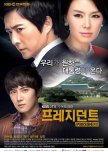
While a good portion of President does revolve around politics and the campaigning process, much more can be seen than that. After all, this is the tale of deep and involving characters, each with their own fleshed out philosophies, backgrounds, and behaviors. These deal with and engage in various conflicts and intrigues, some scandalous, some campaign-crushing, others life-ruining. So what does such an atmosphere produce? High stakes conflict, with constant twists and turns. The viewer never knows what might come out of various happenings, even until the end. There were times I held my breath, totally drawn in, or even cried, having become so involved in this bitter battle.
Another strength rests in dialogue, a major point for scriptwriters. Much like in another surprisingly fetching drama (Empire of Gold), conversations are strong and memorable, if not as literary. Several speeches served up goose bumps, especially those delivered by Jang Il Joon (Choi Soo Jong).
Despite the deep praise I have for much of President, problems do exist in the narrative. There were times, if only on occasion, I found certain events unbelievable or a little “too much.” More serious might actually be the inclusion of Yoo Min Ki (Kim Jay), and the overall pacing of that character’s subplot. Two romances exist on top of this, yet only one works well; the other feels shoe-horned in to hook unsuspecting romance fans.
Acting! Why not start with the best? Jang Il Joon might be one of the most fascinating characters ever written for a drama, and Choi Soo Jong brings him to life with overflowing charisma. Is this a good man, a bad one, or a bit of both? This unforgettable portrayal deepens as our knowledge of Jang Il Joon does – and what an electrifying effect! His voice especially gave me the impression of a true leader; I could listen to this man speak all day, yet always be moved.
Other fine performances belong to Ha Hee Ra (as the deliciously complicated, unscrupulous Jo So Hee) and Kim Heung Soo (brilliant advisor Ki Soo Chan). The majority of Jang Il Joon’s competitors and campaign workers were great too, though particularly Hong Yo Seop (playing noble Kim Kyung Mo). I honestly wanted to give this section a perfect score, but unfortunately several young cast members prevented me. These include Kim Jay and Wang Ji Hye as the biggest offenders, but their scenes are mercifully short in comparison to the rest.
Two great vocals are provided by Super Junior (“Biting My Lips”) and 4MEN (“To Go and Die Alone”) respectively. This second touched me the most; its lyrics suit Jang Il Joon and his upward struggle to a magnificent degree. Otherwise, most incidental music worked fine or was at least unobtrusive, though both the “love ballad” and campaigning tracks were not to my taste.
Cet avis était-il utile?

Cet avis était-il utile?
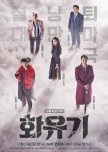
When a story lacks direction, it’s sure to suffer. What did this drama want to be? An idol drama with tons of romance? A monster-of-the-week romp, or an urban fantasy with cataclysmic consequences? The tone is erratic, especially in the beginning, whiplashing viewers between horror and comedy without prelude. In addition to the copious filler, the plot was pulled in so many directions that very little progress was actually made. Not even the romance between the leads received the attention it required to blossom satisfyingly—it just happens, for no rhyme or reason, and we’re expected to invest in it immediately. Overall, the story promises apocalyptic stakes yet delivers something haphazard and episodic, peppered with hollow romantic scenes (the exemplar of which is an early out-of-character, cat-themed aegyo from the female protagonist).
One of the main issues can be found in the massive cast, populated by multiple big names and actors of varying talent and skill. Despite a valiant effort by Lee Seung Gi as Son Oh Gong, the secondary cast steals the show. Lee Hong Ki (PK) and Lee Se Young (Bu Ja) are a delight in spite of frustrating plot developments, easily drawing focus away from the main storyline. The same goes for Lee El as the dog-demon assistant Ma Ji Yeong, Kim Sung Oh as hapless secretary Lee Han Joo, and Sang Hyuk as General Frost and his warm-hearted sister, with whom he shares a body. Cha Seung Won, however, is completely wasted in his role as Ma Wang, the demon king. The character gives him no room to stretch his dramatic legs, instead relying on the zany comedy he so excels at—but this gets old fast, and it’s frustrating to see him spin his wheels with such a flat character. This leads us to the weakest of the bunch—Oh Yeon Seo’s performance as Jin Sun Mi is uninspired, and I couldn’t tell you if her expression changed even once. Her scenes with Lee Seung Gi are sometimes almost uncomfortable to watch, given how dynamic he is in comparison.
That said, the OST is consistently good. Standouts include the absolute bop “Let Me Out” by NU’EST, the tender ballad “When I Saw You” by Bumkey, and the cheerful “I Will Be By Your Side” by MeloMance.
Cet avis était-il utile?

All About My Romance
31 personnes ont trouvé cette critique utile
Perhaps the daunting prospect of wrestling political debate is keeping potential fans away. There's no need to worry on that front. This drama's title can also double as the plot descriptor. Everything is about the lead couple's relationship; the political ideologies were simplified and, like the government positions held by most characters, were largely used to flavor conflicts and create an interesting atmosphere for love to blossom and persevere. Unfortunately this device over-saturated the first four episodes, which served as a foundation for the later events of the story. It's like the necessary bit of salt in your cookie dough recipe accidentally got doubled and overcame the sweetness. By the fifth episode though, a burst of romantic chemistry blows the bitter taste away, leaving the rest of All About My Romance charming and delicious.
The acting was generally good to passable, with Shin Ha Kyun blowing everyone else out of the water only to carry it to the end. Some people have said he's not handsome or young enough to play a romantic lead, but they must not have seen him smile. His whole face lights up and, if you're anything like me, you'll find yourself grinning right along with him. The personality Shin Ha Kyun infuses into his Soo Young will probably win him some attraction anyway, because it fuses the zany and romantic in a completely lovable way. Unfortunately, this great performance also means that he destroyed any possibility for Park Hee Soon (forgettable) to form a compelling second lead and badly overshadowed co-star Lee Min Jung (passable). It's lucky then that Shin and Lee look very well together and have believable chemistry, right?
Musically, the only special mention would be the excellent vocal inserts. Akdong Musician's "I Love You," and Shin Yong Jae's "Simple Love" have found themselves into my iPod. The instrumental tracks were either largely not present or too forgettable. However, watch out for the wacky Benny Hill-esque tracks which play during the fun or comedic scenes. They sound a little silly, but somehow remain completely suitable.
The low level of angst and satisfying wrap to most conflicts in All About My Romance take down its rewatchability, but in a good way. I feel like the sweet and comedic scenes are definitely worth a revisit though, and there are several I'd love to see again.
If you want something light and easy to watch, this drama is for you. Especially if you've just gone through a particularly traumatic melodrama or just want a mood booster.
Cet avis était-il utile?

Watashi no Kirai na Tantei
20 personnes ont trouvé cette critique utile
This drama joyously gallivants as a hilarious parody of the entire genre. It cleverly incorporates references from other famous detective shows (including the likes of Galileo and Detective Conan), and Japanese culture on the whole. Though our basic structure bears similarity to all classic detective stories (complete with episodic cases, familiar crime types, investigation, and denouement), most elements unabashedly embrace a gag or skit. Characters operate like a comedy team, from the detectives and police to suspects themselves.
Despite being nothing excellent or technically great, Watashi no Kirai na Tantei is still silly heaps of fun. This goes double if you like Japanese humor; be prepared to rewind back to certain parts for laughs alone. Not every joke works, but they do often enough. I wouldn't take it seriously as an investigation drama at all, though some cases occasionally ended up engaging nonetheless.
Tamaki Hiroshi possesses glorious comedic timing, most evident in the form of our lead: money-hungry detective Morio Ukai. Though the title may suggest the opposite, viewers will undoubtedly fall for his zippy delivery as the resident “straight man." That isn’t to discount his own oddities, however; for instance, he refuses to listen to the confessions of culprits, even if begged, and seems to prefer searching for lost purebred dogs above murder suspects. Shirashi Shunya sneaks past in a total surprise as “useless” Ryohei, whose assistance to the investigation team stops at his propensity for hilarity. Some scenes together with Tamaki-san were a riot.
Not so great is Gouriki Ayame, whose cutesy Akemi suits the show—that is, until she goes over the top and interrupts the comedic flow. Though this happens only occasionally, those times are almost painful. One unfortunate example actually encompasses most of an early case, where Akemi has her character spotlight (the UFO episode). Gouriki is quite cute, though, and there are some genuinely funny moments from her.
Note also the excellent cameo from Katagiri Jin (of comedy duo Rahmens and The Quiz Show fame). His inclusion was a big plus in of itself.
Music is as one would expect from any detective drama, though there are the occasional surprises. I found it overall pleasant and workable, if nothing worth buying an OST over. The theme stands out well, as does the ending vocal by Gouriki Ayame herself: "Anata no 100 no Kirai na Tokoro" (“The 100 Things That You Hate”).
Cet avis était-il utile?

In the United States, that conflict which came to be called “The Korean War,” holds another designation besides: “The Forgotten War.” Several reasons exist for this, but chief among them is actually timing. Wedged between heroic World War II and hellish Vietnam, amassing fewer American casualties, and yielding little accomplishment, these hostilities are often overshadowed and thus rarely remembered (unless someone mentions M*A*S*H, of course). And yet for Koreans, that this war could be “forgotten” is unthinkable. Its effects are likened unto wounds that ache even today, dividing an entire people along the scar known as the DMZ.
So why stop to talk history? Because, when it comes to a powerful drama like Comrades, it just seems necessary. As many among us have come to know and love South Korea (and not just for excellent entertainment, but its culture and people also), we ought to be aware of the painful history which has molded it until now. After all, that sentiment seems to be at the heart of Comrades: the fervent wish for the viewer to understand.
What’s more, this drama helps one to do so in an entertaining and sincere manner, without the heavy-handed ideology, pointed fingers, or macho-man heroism which might muddy its message. The plot unfolds tightly, abandoning exposition and filler to allow characters and events to stand for themselves. The viewer is never spoon-fed or told what to think, and thus free to see Comrades as it is: a story of ordinary people thrust into extraordinary circumstances. That means that even soldiers from the North are portrayed humanely, whereas not everything in the South comes across as noble. A drama which pulls no punches with any aspect, and never insults the intelligence of its viewers is all too rare.
And so we see The Korean War from a uniquely Korean perspective, following various participants (from South and North Korean soldiers, to guerrilla fighters and even deserters). We learn their stories, each unique and fleshed out, and often come to feel for them no matter the “side.” Not only men are represented, either, with female combatants frequently appearing in the narrative (and well-handled, at that). Yet the best thing about Comrades might be the fabulous characters of 1st Squad, and the deep bonds which form between them. Viewers spend most time with these men, growing to adore them as they fight and survive together. The term “bromance” was invented for such touching male friendships, and I'll never use it lightly again.
Despite the fact battles often occur on screen and action plays an important part in Comrades, the involving and personal nature of the story is what will stick with viewers. Though it might make you cry from the gut, pump your fist triumphantly, or cover your mouth in disbelief, it’s a chance worth taking. For war film and history lovers, you’ll doubtlessly adore Comrades. But if you’re hesitating because this is not your usual type of show, stop! You’ll never see a drama quite like this again, as mature, well-made, and without fear. And the only regret you’ll have after? How pale it makes others seem in comparison.
Perhaps no better Korean ensemble cast yet exists than the one in Comrades. Ever-immaculate Choi Soo Jong headlines as devoted and fatherly Lee Hyun Joong, the sergeant in charge of 1st Squad. This character’s love and care for his men exceeds that of his own life. As I told a friend, Choi appears slight, yet his presence looms large and vibrant; more impressive is that he manages this with a surprising humanity and straightforwardness. I’m extremely attached to Sergeant Lee, even now: an incredible role for an incredible actor.
From Choi Soo Jong, it becomes difficult to single out anyone, but not because they flow together. On the contrary, each character is so well-defined and acted that should I stop to name everyone that stood apart, we’d be here for many more paragraphs. Instead, I’ll list some of the best: Kim Roe Ha (complicated Sergeant Park), Lee Seung Hyo (brash Private Jung), and Ryu Sang Wook (pious Medic Joo Yong). Kim Myung Soo and Jung Tae Woo are notable from the North Korean side, while Lee In Hye and Lee Tae Ran do the ladies proud.
Nothing is more delightful than finding a cinematic soundtrack in a drama. Well, being able to find every track with its title translated might be (as was possible with this one). Almost everything is memorable, with nary a false note to be heard from tense and exciting themes (“Kyrie”) to those equally quiet and painful (“Salute to the Deceased”). Many of my favored Korean dramas tend to include Insooni on the soundtrack, and here her soulful voice haunts the shattering ballad “I Will Come Back.” Among other important vocals are “Requiem for the Unknown Soldiers,” (Gloomy 30’s), and the enduring, folksy “Friends,” offered by Kim Jang Hoon—and on occasion, the boys of 1st Squad. After the final episodes, this is a song that might burrow its way into your heart forever.
Cet avis était-il utile?
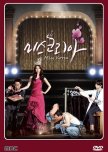
Why not begin by dispelling possible preconceptions? Miss Korea is not some cheap opportunity to watch lovely ladies prance and preen. It never glorifies the institution of the beauty contest, nor does it present beauty as the only measure of female worth. Unlike myriad other dramas, characters do not fall dead at the feet of resident beauties. There is also no ugly duckling plot-line; the lead character is attractive, accepted as such, and needs little more than trade knowledge and support. No Hollywood style, remove-the-glasses-and-change-the-girl makeovers here, folks.
So what exactly is Miss Korea then? It is the earnest tale of perseverance, hard work, friendship, and love. Flaunting quirky style and offbeat humor, viewers tag along as a gorgeous elevator girl, a cosmetics micro-company, and a gangster (who ought to have been a teacher) all chase after their dreams. While the beauty contest plays a large part, it is merely the means to an end. Some events might be a touch predictable, this or that element slightly off, but so much remains to be enjoyed.
But what is any script without an excellent and involving cast? Lee Yeon Hee comes to mind first, playing delightful lead Oh Ji Young. This actress depicts both the strength and vulnerability of her character with aplomb, lending herself easily to the required nuances. Ji Young is also one of my favorite female characters to ever appear in a drama; she displays personal fortitude without authority or martial skill, but with one courageous “Waikiki!” and a bright smile. Lee Sun Gyun falters a little in comparison. His Kim Hyun Joon starts off by rather being sleazy and difficult to like. Luckily, as his chemistry with Lee Yeon Hee stabilizes and the drama finds its pace, so does he; interactions with his leading lady become a definite highlight. I adored both actor and character by the end. Nothing can make his flashback sequences less awkward, sadly. There’s just no making the man look like a teenager.
Other memorable performances come from Lee Mi Sook (fascinating Ma Ae Ri, whom I would love to explain but cannot because she's that incredible), and Lee Sung Min (oddly lovable gangster: Teacher Jung). His every scene with Song Sun Mi (Go Hwa Jung) were highlights in of themselves. It isn't often I fall for supporting characters as much as the leads, but these guys made it easy. Not everything is peachy, though. My chief complaint tacks onto Lee Ki Woo; he's gorgeous, I've enjoyed him before, but his Yoon was a hateful character played too stiffly for my taste.
If one has heard nothing else about Miss Korea, they'll have at least heard how amazing the soundtrack is. As picky as I can get with music, I concur with that opinion wholeheartedly. From memorable instrumentals to fitting insert vocals, this drama has everything. Personal favorites include "Moonlight" (Onew of SHINee), "Hero" (J-Min), and pretty much anything contributed by Every Single Day. Such a great sound for a more than pleasant show.
Cet avis était-il utile?

At first (and for most of its duration), Love Around is pleasant and simple. It never attempts to be more than a light-hearted romp centered on relationships. Some bubbles of conflict surface along the way; these are either dealt with swiftly or swept so far to the side as to be partially forgotten. Early episodes are relatively strong, with the warm dynamic between leads generating bright interest. How refreshing to see honest friendship predate romance, rather than the staple: bickering hatred! Though loveline development is slow, it is also remarkably sweet and natural. And the "comedy" paired with "romantic" in the genre tag? This aspect works well enough, with the usual stumbles here and there.
Major problems emerge around episode 15, coinciding with the first extension. Shift in tone swings so wildly toward melodrama as to be startling. Cliche suddenly invades in force, chomping away at most everything previously fun and original. Once the main conflict is remembered and brought to the forefront, it is milked dry quickly. Worst of all, passable pacing ultimately gives way to scenes as tiring as they are repetitive. These extra portions often center on unabashed filler plots and characters, some of which are wholly new. Once the second extension ends the series, one will find the conclusion rushed though rewarding. Admittedly, some of the sweetness comes from the entire experience finally ending.
The cast remains consistently likable despite late-game overcrowding. George Hu plays gentle melancholy beyond expectation, lending much-needed variety to a genre overpopulated by arrogant princes. His chemistry with Annie Chen is unquestionable; they complement each other just as well as everyone says. Her Xiao Shu stands rather sympathetic until the extension removes her spine and pluck, carried onward mostly by her innate affability. The second leads are a mixed bag, with Jack Lee depicting dull Gao Zhe Xuan without much flair of his own. Idol singer Elleya Tao fares much better, molding the spoiled brat archetype into lovable rather than annoying. Her scenes eventually became an unlooked for pleasure (and a bright spot in the extension doldrums).
Heard of singer Bii? If not, Love Around will introduce you. His songs are heavily promoted throughout the drama, from the catchy theme ("Come Back To Me") to inserts ("Nothing To Do With Happiness," "I'll Be By Your Side," a duet with Miu Chu). One of the only non-Bii tracks belongs to none other than Elleya Tao: "I Love You," an infectious upbeat number.
Cet avis était-il utile?

